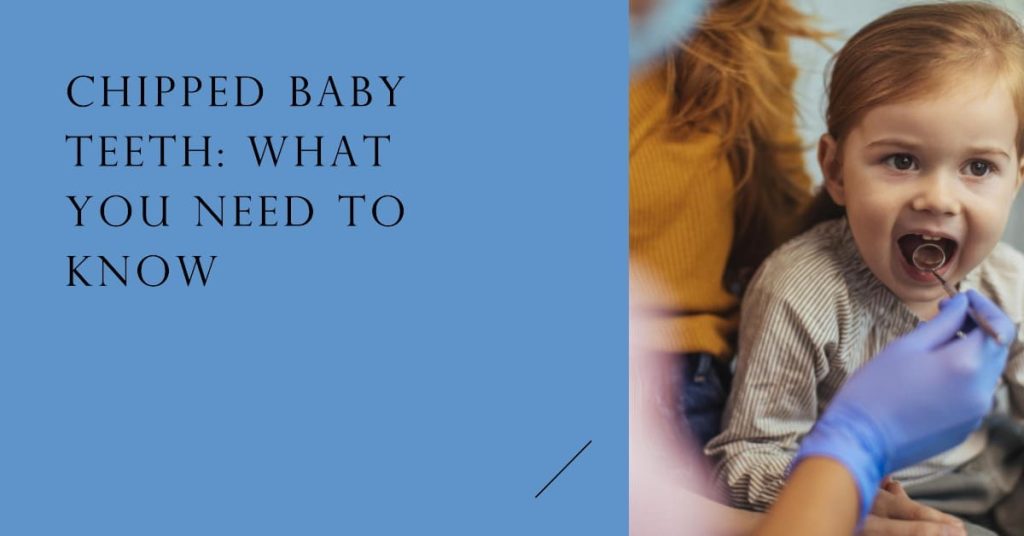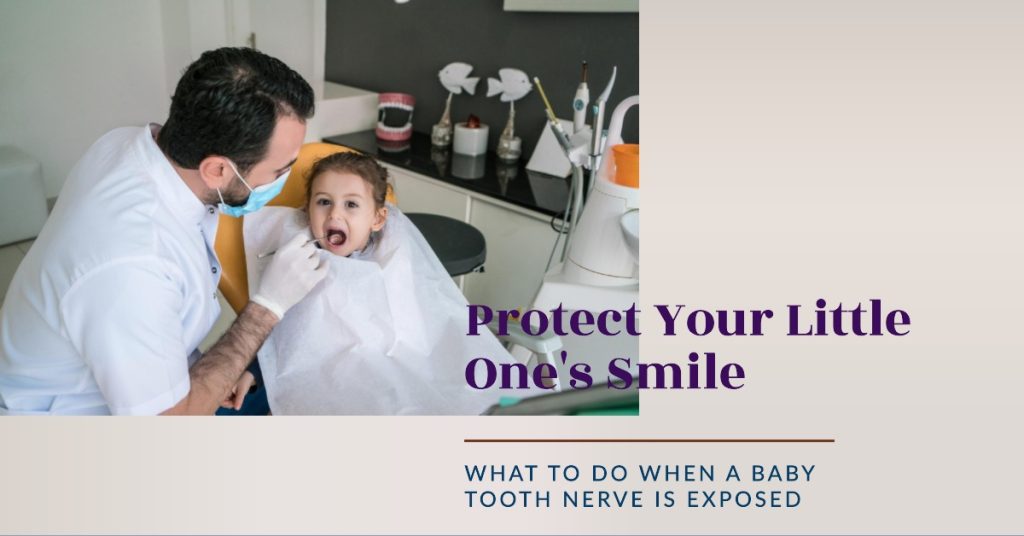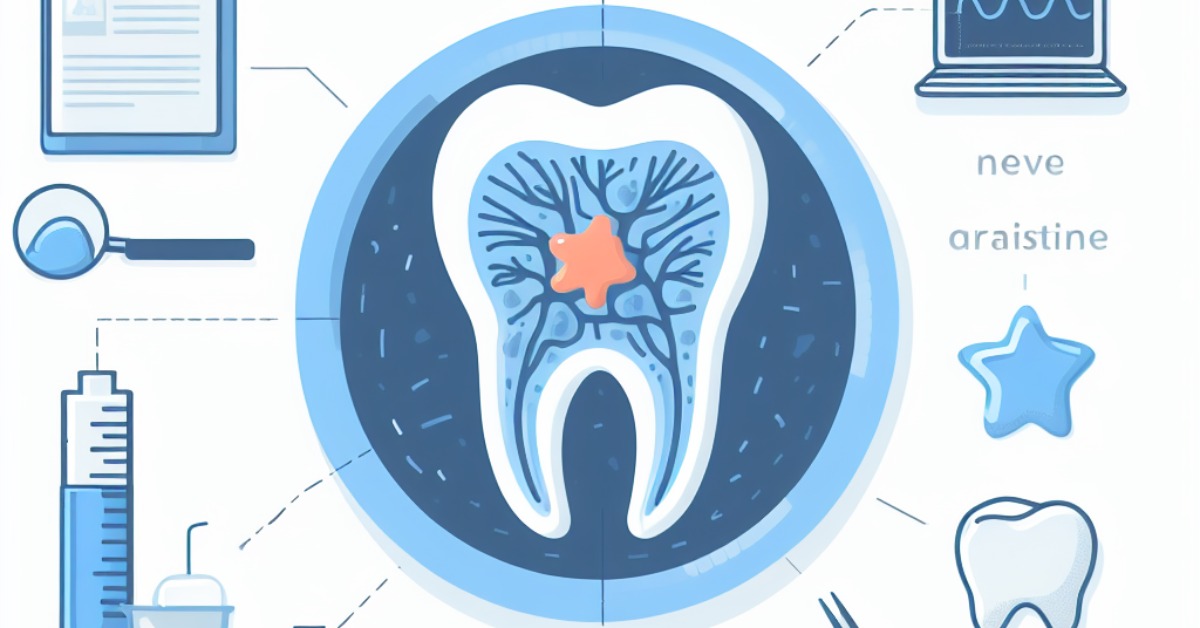Sometimes, parents may get curious and ask do baby teeth have nerves. Yes, baby teeth do have nerves. Baby teeth are very similar to adult teeth in many ways. Baby teeth contain dentin and enamel just like adult teeth do. But they are smaller and more delicate due to their ongoing development.
The pulp cavity at the centre of a baby tooth is where the nerve endings reside. The pulp cavity area contains blood vessels, connective tissue cells, and highly sensitive nerve endings that run from the root up into each individual tooth. These nerves help give babies’ mouths a heightened sense of touch so they can learn how much pressure needs to be applied when eating or drinking.
When a baby experiences pain due to cavities or an injury, it is caused by the stimulation of these nerves. It’s important for parents to keep up with regular check-ups so that any issues with the infant’s oral health can be caught early on and treated appropriately.
Do Baby Teeth Need Fillings?
Yes, baby teeth can sometimes require fillings. Baby teeth, also known as primary teeth, are important for a child’s overall oral health and development. They help with speech, chewing, and holding space for permanent teeth.
If a baby tooth develops a cavity or decay, it’s essential to address it promptly. Leaving cavities untreated can lead to pain, infection, and potential damage to surrounding teeth. A dental professional will assess the situation and recommend a filling if necessary. In some cases, they might use materials like dental amalgam or tooth-coloured composite resin to fill the cavity.
Maintaining proper oral hygiene and regular dental check-ups can help prevent cavities in baby teeth, but if they do occur, it’s important to seek timely treatment.
Do Baby Teeth Have Roots When Pulled?
Yes, baby teeth do have roots when they are pulled. The root of the tooth is typically made up of two parts: the crown and the root. When a baby tooth needs to be pulled, it means that it has already come loose from its root in the bone but still has a small portion attached to it.
This portion will need to be removed for complete extraction. Depending on how much of the root is left after extraction, some dentists may use forceps or other instruments to help remove any remaining pieces from beneath the gum line. After removal, there may be some bleeding and discomfort which can usually be managed with medications or over-the-counter remedies such as ice packs and ibuprofen.
To ensure your child’s mouth remains healthy after their baby teeth have been pulled, regular dental visits should continue so that their permanent teeth can develop correctly without interference from decayed or damaged baby teeth!
Can Pulling a Baby Tooth Cause Nerve Damage?
No, pulling a baby tooth will not cause nerve damage. Baby teeth are much smaller and less firmly rooted than permanent teeth. So the risk of damaging surrounding tissues is minimal when pulling them. However, it is still important to be careful when removing a baby tooth as there can be some discomfort for the child involved.
It is best to use special tools designed specifically for this purpose and follow instructions from your dentist or dental hygienist before attempting to remove any teeth on your own. If you feel like the situation warrants it such as an infection present in the area of the tooth then make sure you consult with your dentist first before taking action.
All in all, while it may seem frightening at first thought; rest assured that pulling baby teeth does not pose any serious risks regarding nerve damage so parents should proceed with caution but without fear!
Do Baby Teeth Hurt When Chipped?

When a baby’s tooth is chipped, it may cause discomfort or pain. The severity of the pain can depend on how extensive the chip is and if any nerve endings have been affected. In some cases, even minor chips can be painful because there are more nerves in baby teeth than in adult teeth.
Baby teeth are also softer and more prone to damage than adult teeth as they have not yet fully developed enamel which protects them from decay and trauma. If your child has chipped their tooth, it’s important to seek dental care right away so that proper treatment can be done to prevent further damage or infection.
Depending on the extent of the chip, your dentist may need to fill it with a composite resin material or crown in order to protect the remaining part of the tooth from further harm and restore its natural shape.
To provide relief for any associated pain or discomfort caused by a chipped baby tooth, your dentist may recommend over-the-counter medication such as ibuprofen or acetaminophen until you’re able to get into see them for treatment.
Where Do Baby Teeth Roots Go?
A baby tooth root goes through an interesting journey once it has served its purpose in a child’s mouth. The roots of primary teeth usually dissolve and are absorbed by the body after the permanent tooth erupts and takes its place. This process is known as resorption and occurs when cells break down substances like minerals, fats, proteins, or other organic matter.
Once the tooth root has been completely dissolved, it is reabsorbed into the bloodstream via lymphatic vessels to be used elsewhere in the body for important functions such as tissue repair or energy production.
It’s amazing how this simple process allows us to make room for our adult teeth while still utilizing those precious nutrients!
Baby Tooth Nerve Exposed

If a baby tooth’s nerve (pulp) is exposed due to trauma or extensive decay, it can be a painful and potentially serious situation. Here are steps to take if you suspect a baby tooth’s nerve is exposed:
Contact a Dentist or Pediatric Dentist:
Seek professional dental care promptly. Contact your child’s dentist or a pediatric dentist for an immediate appointment.
Avoid Aggravating the Area:
Encourage your child to avoid touching or attempting to manipulate the affected tooth. Eating or drinking, especially hot or cold items, may cause discomfort.
Rinse with Warm Salt Water:
If your child is old enough, have them rinse their mouth with a warm saltwater solution. This can help reduce bacteria and soothe the area.
Pain Relief (if advised by a dentist):
If recommended by a dental professional, you may administer a child-appropriate pain reliever. Follow the dosage instructions carefully.
Avoid Putting Pressure:
Discourage activities that may put pressure on the affected tooth, such as chewing on hard foods.
Maintain Good Oral Hygiene:
Encourage your child to continue brushing and flossing their teeth, being careful around the affected area.
Follow Professional Advice:
Follow any specific instructions provided by the dentist. They may recommend treatment options, such as a filling, crown, or extraction, depending on the severity of the exposure.
It’s crucial to seek professional dental care promptly in this situation to prevent further complications and alleviate any pain or discomfort your child may be experiencing.
The Shocking TRUTH About Baby Teeth
Conclusion
In conclusion, it is clear that baby teeth do have nerves and sensations. This means that babies feel pain when their teeth are developing or being worked on by a dentist. Although the nerve endings in baby teeth are fewer than in adult teeth, they still feel discomfort and need to be taken care of properly in order to ensure healthy development.
Taking good care of your child’s dental health is essential for proper growth and development.









